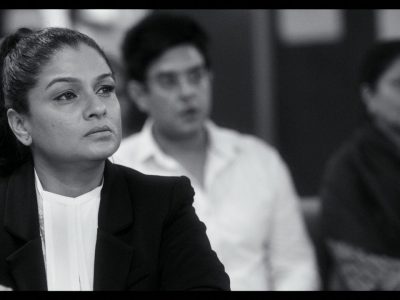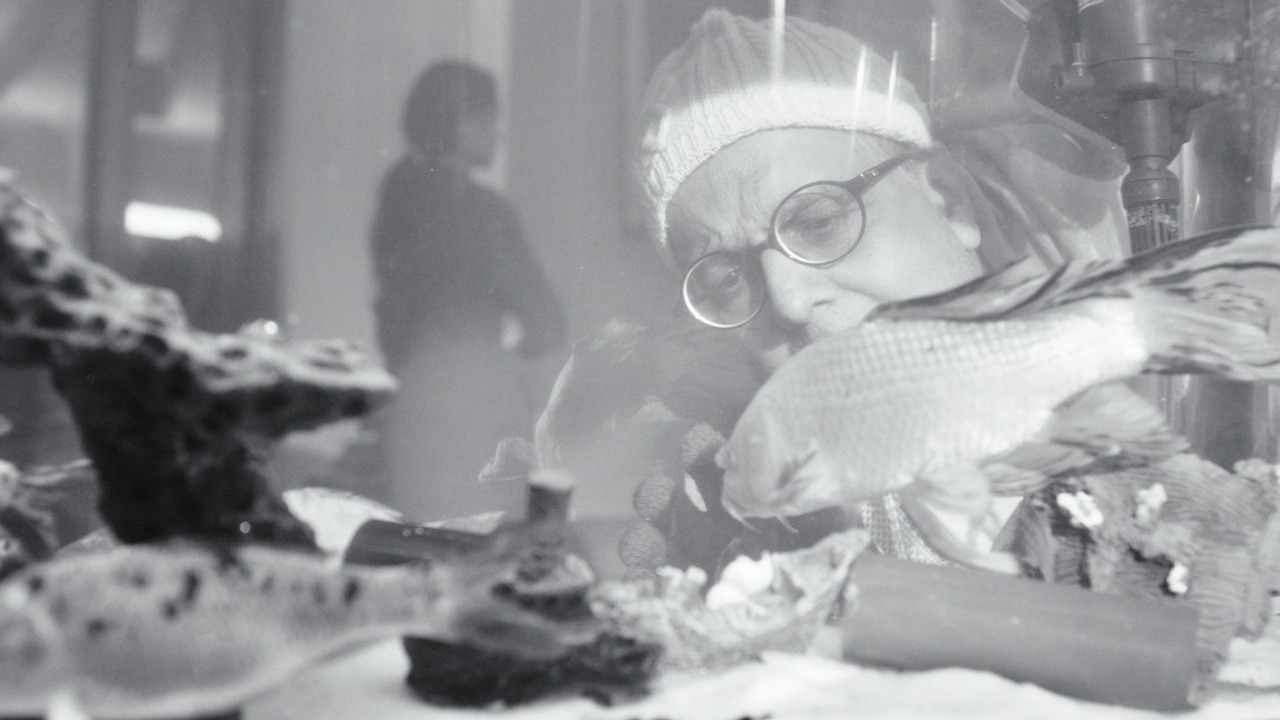Tackling the difficult theme of paedophilia, the Yes Papa film chronicles the harrowing journey of a father’s sustained sexual abuse of his own daughter until she reaches adolescence.
Rooted in a true story, the movie has garnered attention on the festival circuit and marks the directorial debut of Saif Hyder Hasan, a luminary in theatre, renowned for his ambitious productions that breathe new life into classic stories and bold reinterpretations of historical figures.
Hasan has previously made a name for himself by bringing film actors onto the theatrical stage, where they have taken on challenging roles, such as Zeenat Aman as Kasturba Gandhi, Arif Zakaria as Mahatma Gandhi and Guru Dutt, Deepti Naval as Amrita Pritam, Sonali Kulkarni as Geeta Dutt, and Shekhar Suman as Sahir Ludhiyanvi, among others.
In Yes Papa, Hasan eschews big-name stars for lesser-known yet impactful actors, in a move that reinforces the film’s thematic depth over superficial star power. This approach allows for a more immersive exploration of the subject matter and underscores the film’s commitment to confronting uncomfortable truths.

The protagonist Vinita Ghoshal, portrayed by Geetika Tyagi, grapples with the enduring trauma of childhood sexual abuse, leading to an unthinkable crime. The narrative unfolds through a protracted court case that strains the judge’s resolve, who must balance logic with emotion.
A pivotal moment arrives when Vinita, now a wife to the devoted Harshit Kapoor (played by Hasan Zaidi) and mother to the six-year-old Maahi (Yusra Taufiq), confronts her past in a haunting ritual before the washroom mirror. This scene, laden with raw emotion, provides a telling glimpse into the unraveling of the storyline, yet leaves audiences yearning for the resolution of Vinita’s trauma and the culprit’s reckoning.
Director Hasan, drawing from international film standards, eschews melodrama in favor of subtle portrayals, often lingering on actors’ facial expressions. This approach challenges audiences accustomed to Bollywood’s theatrical extravagance.
Reflecting the director’s personal touch, the antagonist, a connoisseur of old Hindi melodies, counterpoints the court’s legal proceedings with poetic arguments delivered in Shayari. This blend of music and verse provides a unique texture, with the antagonist’s own musical background lending authenticity to his performance, exemplified by Ananth Mahadevan’s impassioned delivery of iconic songs like Bhanvre Ki Gunjan Hai Mera Dil, Main Ye Soch Uske Ghar Se Utha Thaa, Ranjish Hi Sahi, and Baiyyan Na Dharo. The actor’s genuine passion for music shines through, rendering his character’s musical interjections seamlessly into the narrative
Actors in action
Survivors of child sexual abuse often grapple with a myriad of emotional and psychological challenges. These may include, but are not limited to, depression, anxiety, post-traumatic stress disorder (PTSD), dissociation, as well as feelings of shame, guilt, and worthlessness.
The effects of such abuse can have long-lasting impacts, with some individuals experiencing substance abuse, eating disorders, social isolation, and difficulties in parenting, while others may face issues in forming physical relationships or intimacy.

In severe cases, survivors may even resort to criminal behavior. The extent of these effects can vary greatly from one individual to another.
Hasan picks lack of intimacy in married life and criminal behaviour to weave his story of the trauma that Vinita goes through.
Geetika, a renowned model and television actor, embodies the role of a woman who has internalised her pain, opting for silence over external expression, even in the presence of her partner. She maintains a stoic demeanor, except when confronted with personal questions from her lawyer, portrayed by Tejaswini Kolhapure, in court. Here, her emotions break through her restrained facade, communicated more through her tears than any verbal response.
For an audience accustomed to the theatrical presentation of emotions within courtroom dramas, Geetika’s subtle approach might seem less engaging.
In the film, Hasan Zaidi’s character may have fewer scenes, but he makes a significant impact with his portrayal of a stylised young man and devoted father. His interactions with his daughter are particularly endearing, and his deliberate pauses and punctuations during dialogue delivery add depth to his character. Meanwhile, Yusra Taufiq, playing his daughter, captivates audiences with her charm in every frame.
On the other hand, Ananth Mahadevan, portraying the antagonist, leaves an eerie impression with his unapologetic and sadistic demeanor. His character’s habit of humming filmi melodies to express wickedness and greed, all while maintaining a calm demeanor, showcases Mahadevan’s meticulous research on such complex characters. Both the director and actor deserve applause for this portrayal.
Sanjiv Tyagi, as the opposition lawyer, steals the show with his coquettish style of delivering arguments in chaste Urdu verses from Sahir and Ghalib. His body language exudes the demeanor of a devil’s advocate, complemented by his sarcastic smiles and arrogance.
In the courtroom scenes, Tyagi and veteran actor Divya Seth create a powerful space with their authoritative style of dialogue delivery. Their seasoned performances compensate for the flaws of newcomer Nandita Puri, who portrays Vinita’s mother. Whether it’s the actor’s limitations or the director’s vision that makes her emotions seem flat, it becomes evident that the non-Bollywood style of filmmaking the director boasts of may not always be effective.
Framed well
The film employs evocative frames to imbue each scene with a range of emotions—from mal-intent to passion, from playful frivolity to hallucinatory illusion. Cinematographer Vineet Dubey and Chetan Anand deliver a visual narrative akin to flipping through the pages of a captivating photo book. The pacing of each scene is unhurried, affording it the opportunity to unfold and develop gradually. This results in Yes Papa often feeling more like a realistic documentary, with less emphasis on dialogue and a brooding ambience.
A beautiful song gudia penned by Hasan himself, plays throughout the film, is a constant reminder of the purity of a father-daughter relationship as much as a complain about such a different daddy. While the sound designing adds required groove to intense shots, the breezy music by Ramesh Bhagat is much-needed relief to a stressful watch.
The director’s lens
Hasan’s directorial approach can be likened to a dancer moving without inhibition. This unconventional style is evident in the film’s visual aesthetic, where only three frames are in color, and the rest are in black and white—a decision driven by the film’s mood.
In his unique direction, Hasan steers actors away from the natural inclination to blink, creating an intense, unblinking gaze that demands attention. The film avoids graphic depictions of abuse, instead conveying them through symbolism and gestures—a testament to Hasan’s ability to tackle a sensitive subject with restraint and finesse.

The narrative, while at times predictable, raises thought-provoking questions about complex human dynamics. Why does a malevolent father confide his future intentions to his daughter? Why does she welcome him back into her life? How does a loving husband divorce a wife who never complains? These questions challenge viewers to ponder the intricacies of relationships and societal norms.
Indeed, the film’s underlying message is its most significant aspect. According to 2020 data from the National Crime Records Bureau (NCRB), a staggering 28.9% of children have experienced some form of sexual crime, yet only 65.6% of these crimes were reported. Alarmingly, 90% of these crimes occur within families. This statistic underscores the urgent need to address the pervasive issue of child sexual abuse within domestic settings.
Hasan’s journey
After the final shot was taken, Hasan was spotted in a state of emotional collapse, tears streaming down his face as he slumped lifelessly onto a sofa – something witnessed by this correspondent.
He appeared to have been completely drained of energy, and his colleagues refrained from approaching him. It wasn’t until nearly an hour later that he was able to compose himself and greet others.
“I was exhausted. A catharsis was required,” he explained, revealing the real-life inspiration behind Yes Papa—his wife Sadia Hasan’s encounter with a rape survivor at a Mumbai orphanage.
“The film was my way of asking why such abuse happens, and how it can be stopped,” said Hasan, who initially faced challenges finding a cast and securing funding. Despite obstacles, the film garnered recognition, including several awards and screenings at institutions like the National Human Rights Commission and Delhi Commission for Women.
Reflecting on the challenges he faced in bringing this project to fruition, Hasan revealed, “It has been a five-year journey since the film’s inception in 2018. We encountered a lack of funds, followed by the onset of the Covid-19 pandemic. Securing funding was particularly challenging due to the film’s sensitive subject matter, and the Censor Board of Certification initially denied the film a certificate, even expressing a desire to ban it. Eventually, the film received a censor certificate without any cuts.”
Yes Papa is set for a cinema release on March 22.




